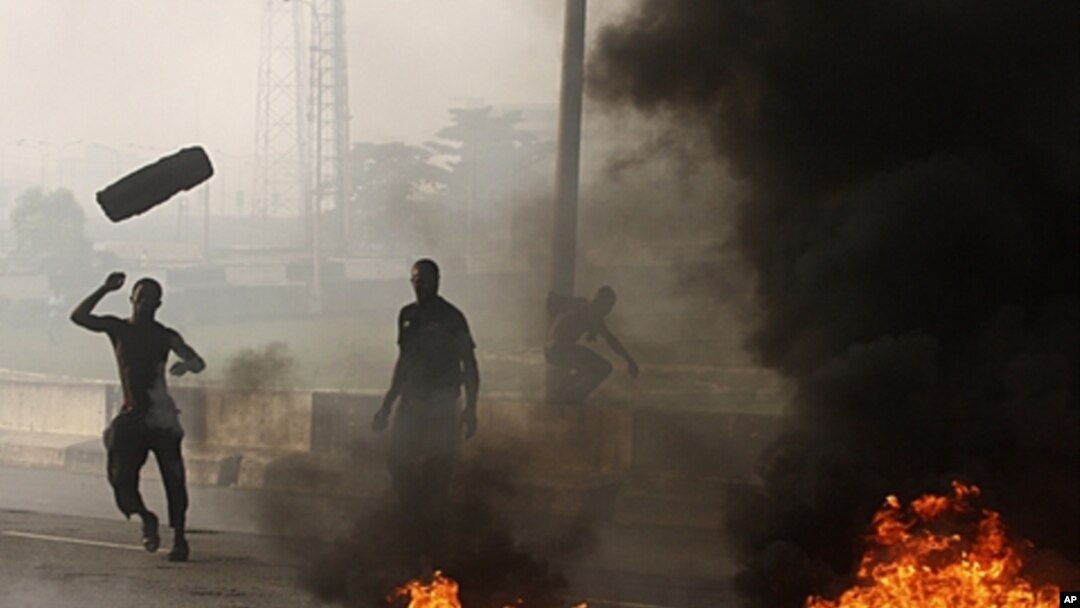Anger swept across Nigeria Tuesday as huge crowds gathered to protest soaring fuel prices and corruption during the second day of a nationwide strike.
Police in the main commercial city of Lagos watched as thousands of people chanted anti-government slogans while smoke from burning tires rose to the sky. Angry youths had set the fires to block access to a wealthy district.
Thousands more demonstrated in the capital, Abuja. There, the crowds grew so large that police had to bring in extra units to help keep order.
In the southern city of Benin, an angry mob attacked a mosque and a school. The Nigerian Red Cross said five people were killed. An official for the group said those attacks likely were connected to ongoing tensions between Muslims and Christians in the country.
Three deaths were reported during the first day of fuel price protests on Monday.
Nigeria's main labor unions have vowed to strike until the government restores a fuel subsidy eliminated on January 1. Removal of the subsidy caused fuel prices to double in a single day.
President Goodluck Jonathan so far has refused to reinstate the subsidy, calling it unsustainable. He said its elimination will save the government at least $8 billion this year, which he promises to use on infrastructure and social programs.
Since the subsided ended, food and transportation costs have also soared.
Most Nigerians live on less than $2 a day and the fuel subsidy was one of the few benefits they received from the country's oil wealth. Nigeria is Africa's top oil producer.
Protesters, like artist Lanre "Eldee" Dabiri, said graft is the real cause of the nation's problems.
"We are talking about the fuel subsidy, but the real problem is corruption, they are wasting our money," said Dabiri.
Some economists have called the subsidy corrupt and wasteful, saying it encouraged smuggling into neighboring countries where fuel was more expensive.




